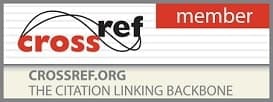- Printed Journal
- Indexed Journal
- Refereed Journal
- Peer Reviewed Journal
P-ISSN: 2394-1685 | E-ISSN: 2394-1693 | CODEN: IJPEJB
Impact Factor (RJIF): 5.38
2015, Vol. 2, Issue 2, Part C
Relationship of skill related physical fitness variables to academic achievement of high school boys
Author(s): HN Shashidhar, S Madialagan
Abstract:
The purpose of the present study is to find out the relationship of skill Related Physical Fitness Variables to Academic achievement. To achieve the purpose of the study eight hundred sixty nine Male adolescent students, in grades from 8th through 10th ranging in age between 13 to 15 years from ten different recognized private schools of Mysore city were selected as subjects. The subjects were Measured for their Performance in Selected skill related fitness variables through respective standard tests, that included Agility (Shuttle Run); Balance, (Bass Stick test); coordination (soft ball throw); Power (Vertical Jump); and reaction time (Nelson Hand Reaction time test). Academic achievement was considered as the academic performance of the subjects measured in terms of percentage of marks obtained in the examinations conducted by the schools, as given in the school records. Data of various measures obtained by the performance of subjects were analysed using product moment correlation and step-wise regression Analysis. Analysis of data revealed that, of the five variables considered, only agility correlated positively and significantly with academic achievement. When the selected variables were regressed on academic achievement, only agility emerged as the major predictor of academic achievement of the subjects. The other variables did not predict academic achievement significantly.rnBackgroundrnPhysical fitness is an important health marker both in the early years and later in life (Ortega 2008; Ruiz, 2009) [9, 10]. There are numerous benefits of physical fitness for physical health (ie, cardiovascular and metabolic diseases, obesity, and musculoskeletal problems) and mental health. (Brage, Andersen and Stroth, 2010) [4]. In addition, a growing body of evidence suggests that physical fitness also may play a key role in brain health and academic performance in youth. (Chaddock 2012) [5]. It is likely that physical fitness improves cognitive control that involves inhibition, working memory, and cognitive flexibility, aspects that provide the foundation for academic ability (Agostino 2010) [2].
Pages: 124-126 | 1825 Views 249 Downloads
Download Full Article: Click Here

How to cite this article:
HN Shashidhar, S Madialagan. Relationship of skill related physical fitness variables to academic achievement of high school boys. Int J Phys Educ Sports Health 2015;2(2):124-126.








 Research Journals
Research Journals